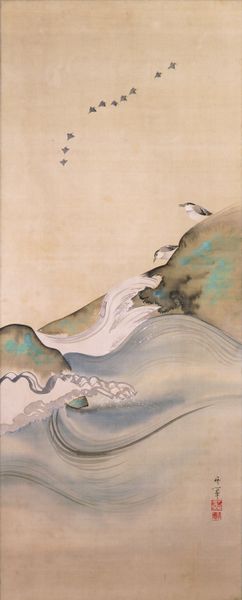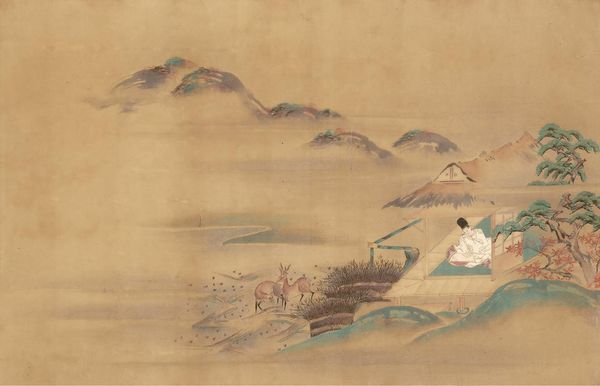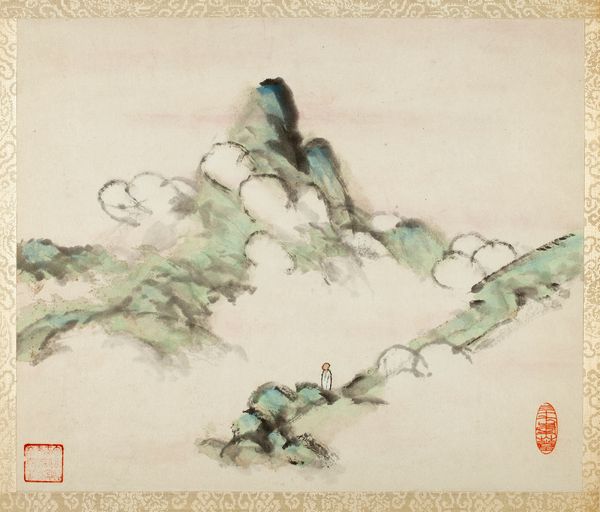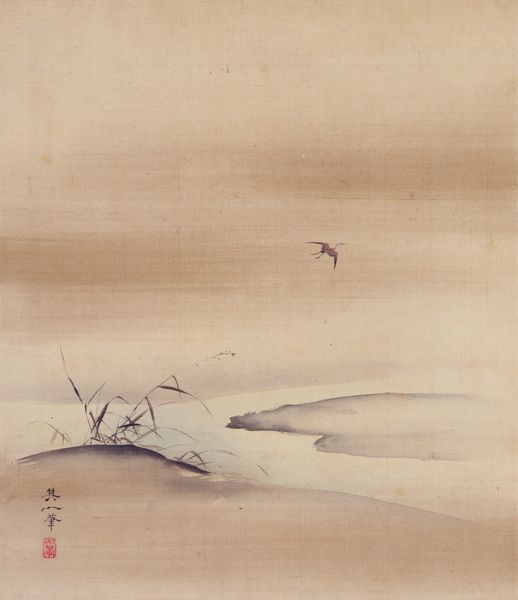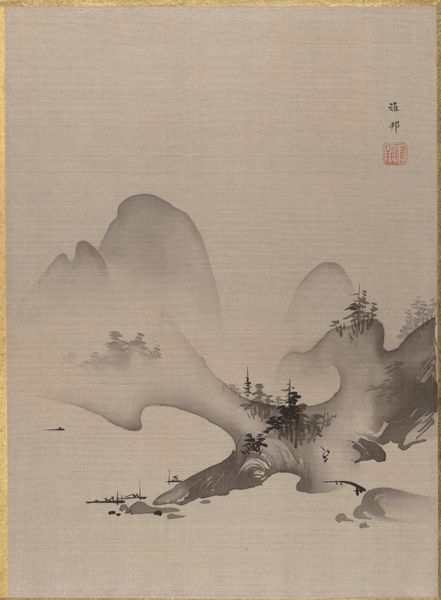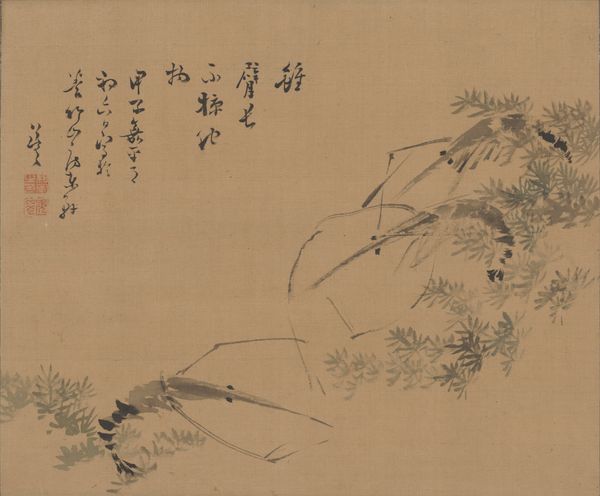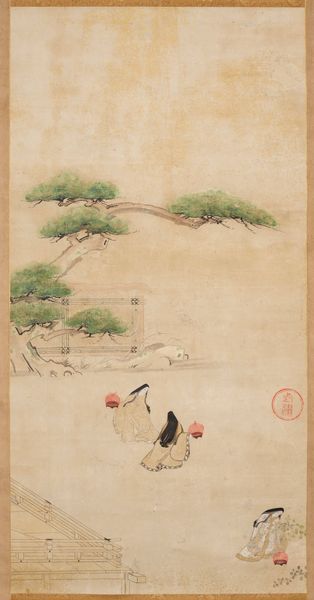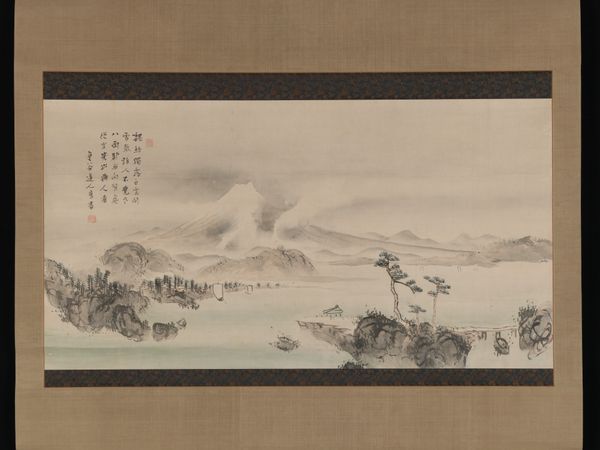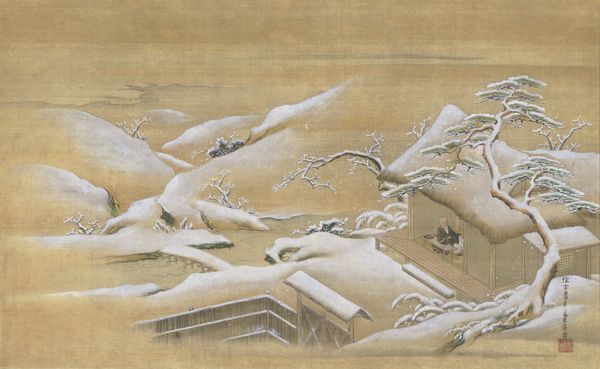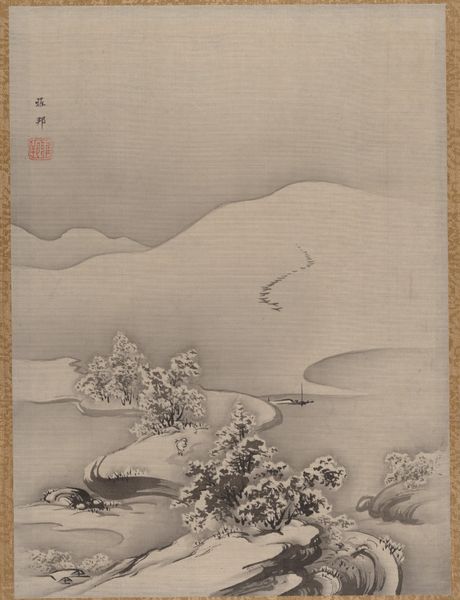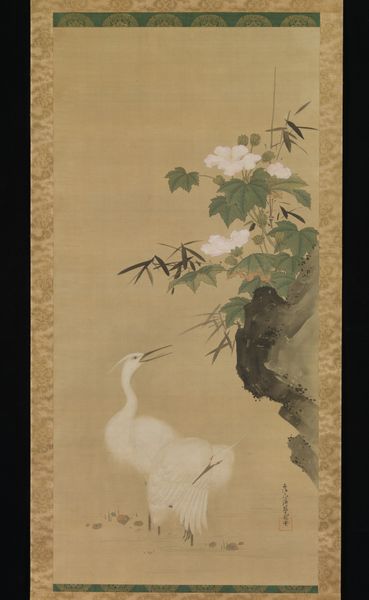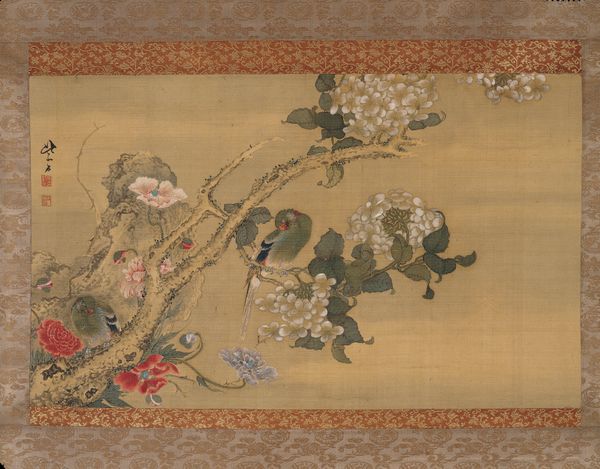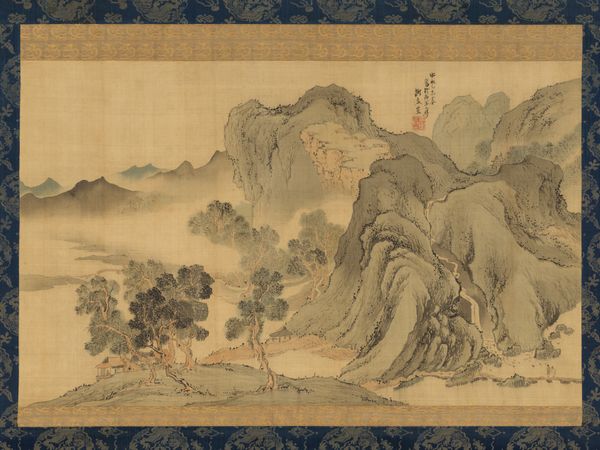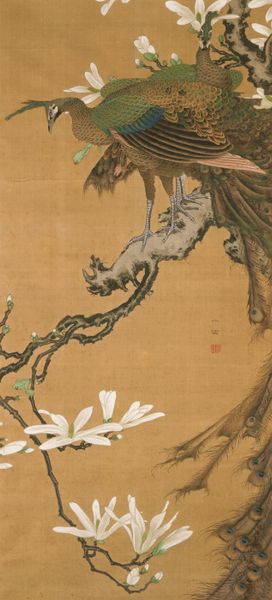
drawing, painting, paper, watercolor, ink
#
drawing
#
water colours
#
painting
#
asian-art
#
landscape
#
paper
#
oil painting
#
watercolor
#
ink
#
orientalism
Dimensions: 27.3 × 251.4 cm
Copyright: Public Domain
Editor: We're looking at "Mount Horai," painted by Kano Isen'in, sometime between 1802 and 1816, rendered in ink and watercolor on paper. It feels quite ethereal and meticulously composed. What strikes you about this piece? Curator: Its compositional balance is immediately evident, is it not? The artist uses asymmetry to guide the viewer’s eye across the scroll, employing what we might term dynamic equilibrium. Note the strategic placement of the rock formations, trees and cranes which punctuate the space, offering a visual cadence. Editor: So you are drawn to the arrangement first. I see the waterfall on the right too - what is the relationship of foreground and background? Curator: Precisely. How does the interplay of color and line contribute to a sense of depth? Note how Isen'in manipulates ink wash to create atmospheric perspective. The subdued palette and subtle tonal variations create an illusion of receding space, drawing us deeper into the depicted landscape. Further, contemplate how the positive and negative spaces interact. Does the artist create visual tension? How does this interplay between forms affect your perception? Editor: I hadn't noticed so much control when first looking - thank you. This has taught me the importance of looking closer. Curator: Indeed. Formal analysis rewards careful observation. It provides us with a vocabulary to articulate the aesthetic impact and meaning behind a work of art. We decode it.
Comments
No comments
Be the first to comment and join the conversation on the ultimate creative platform.
